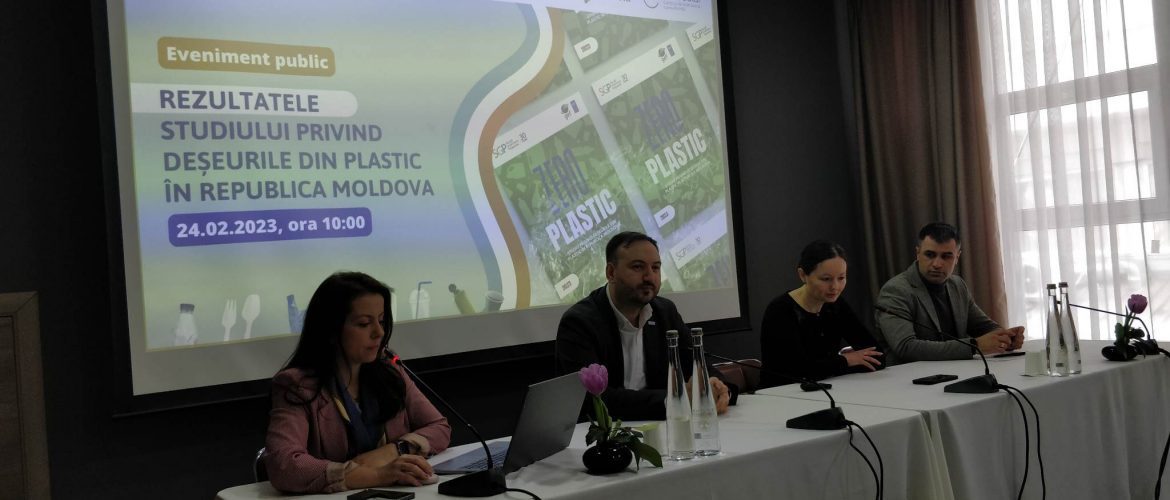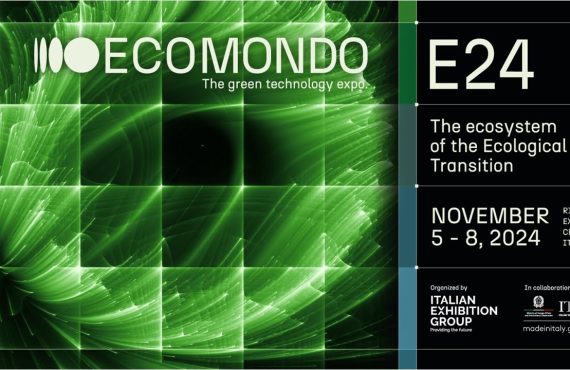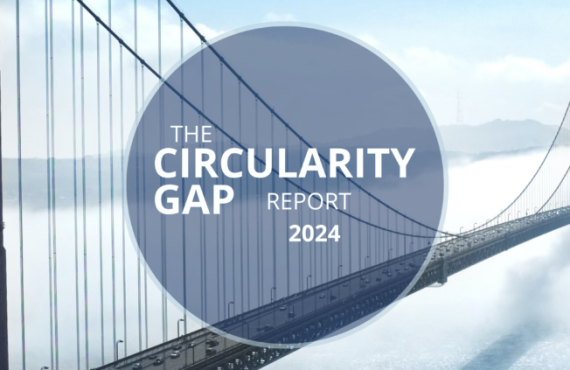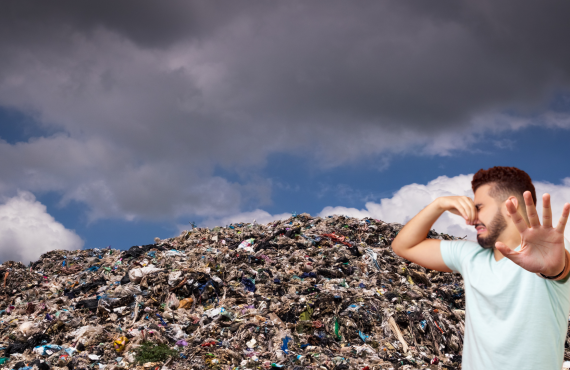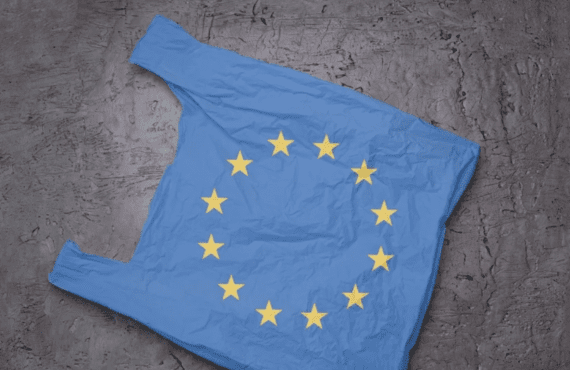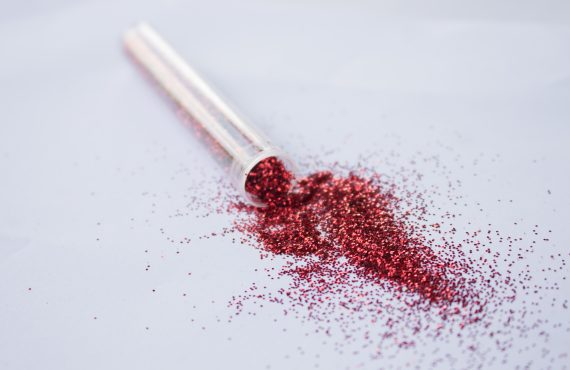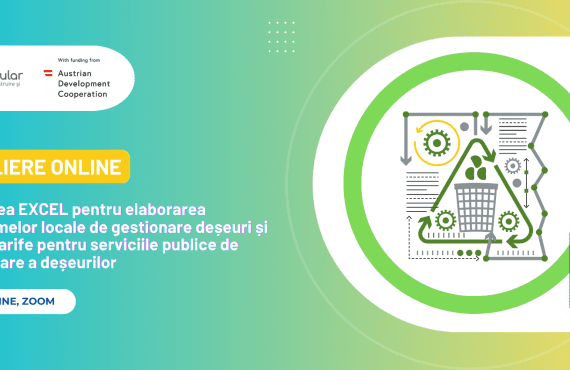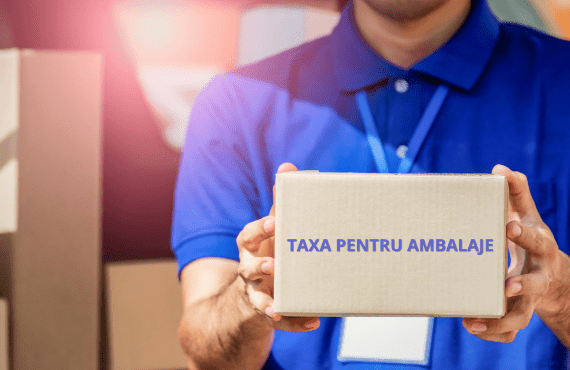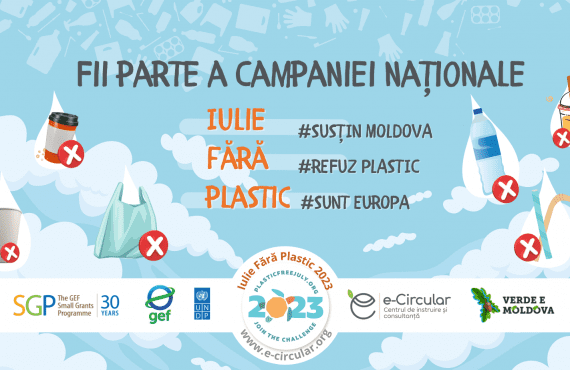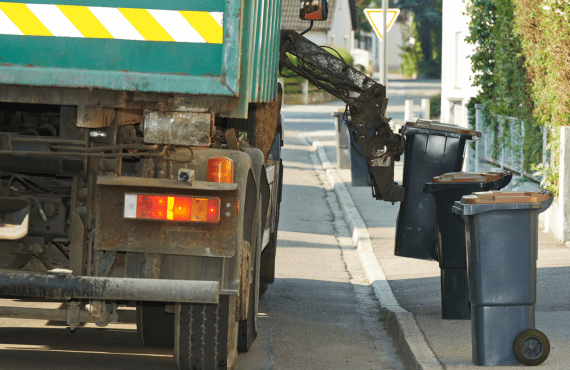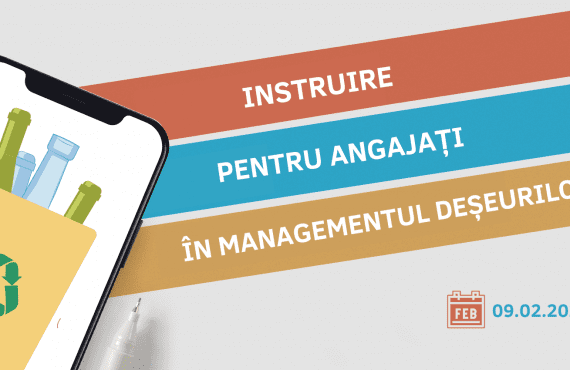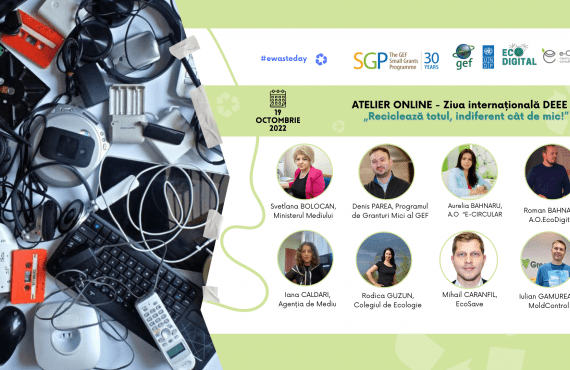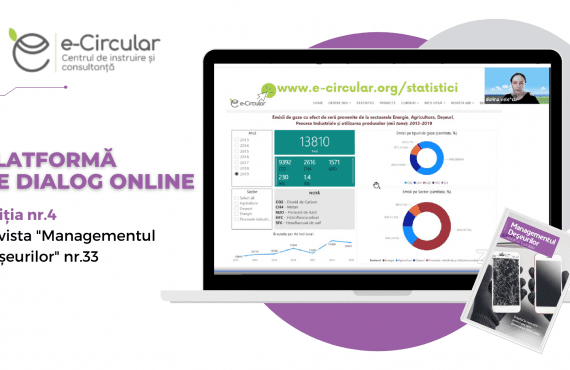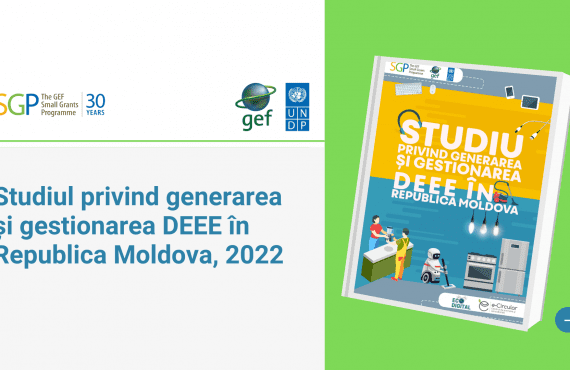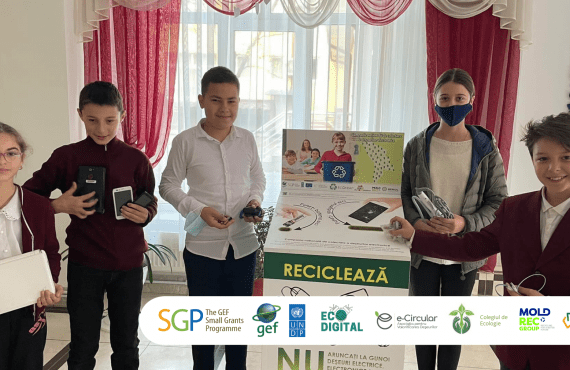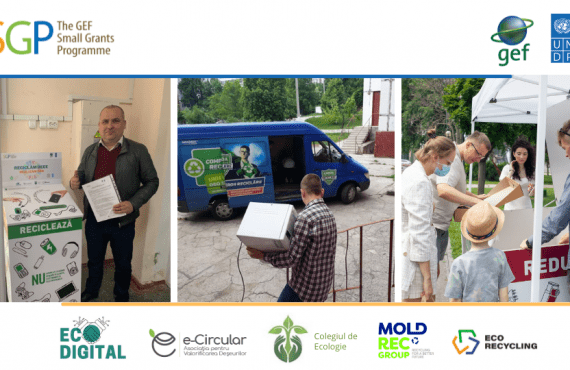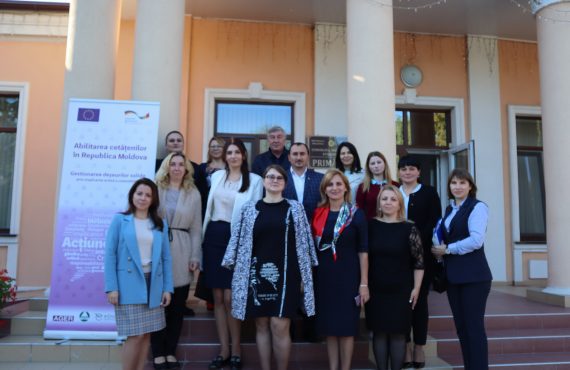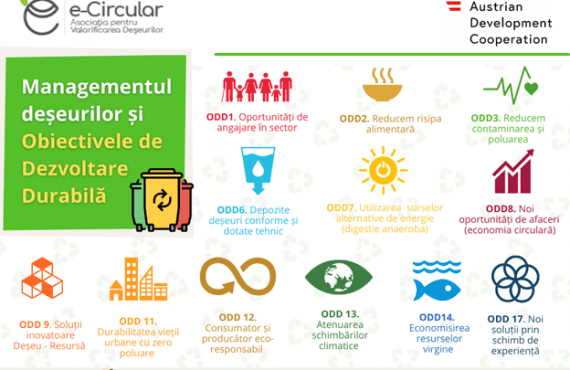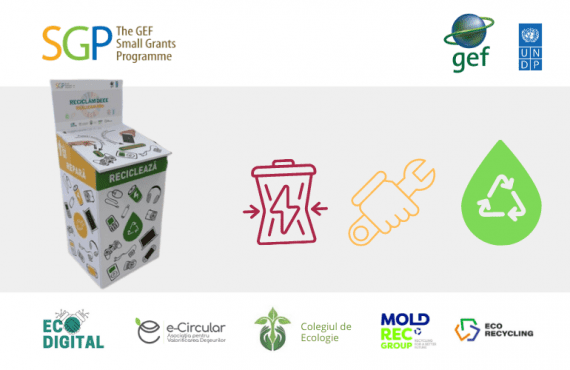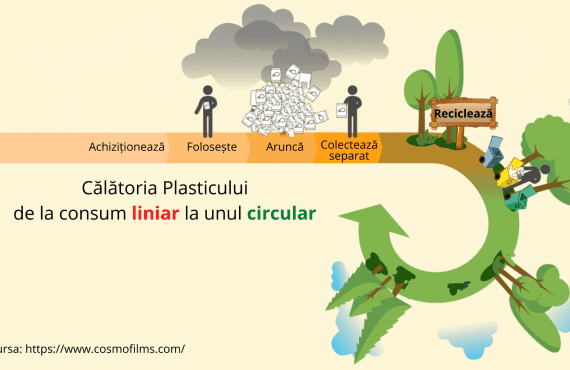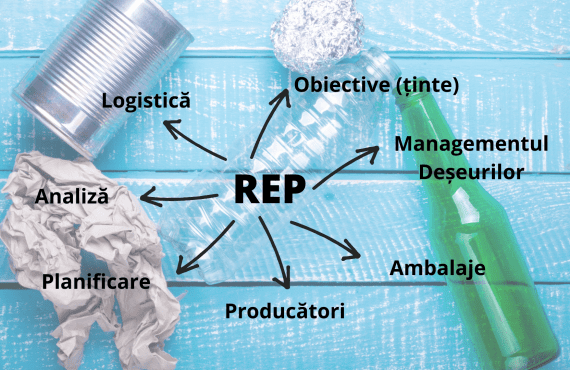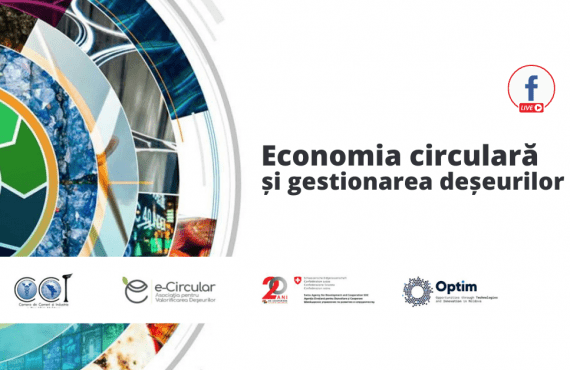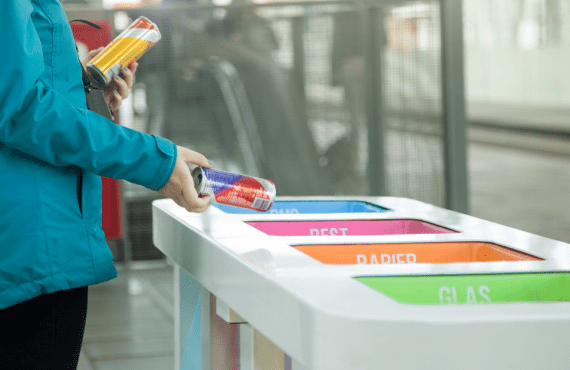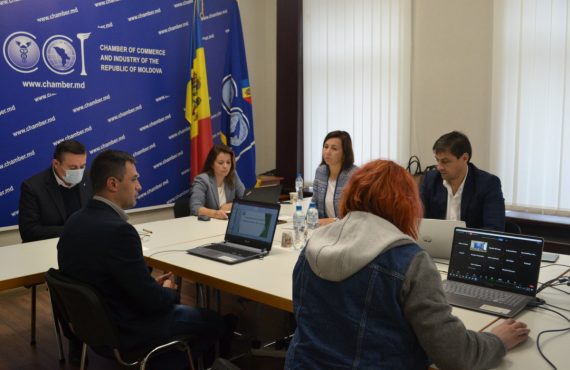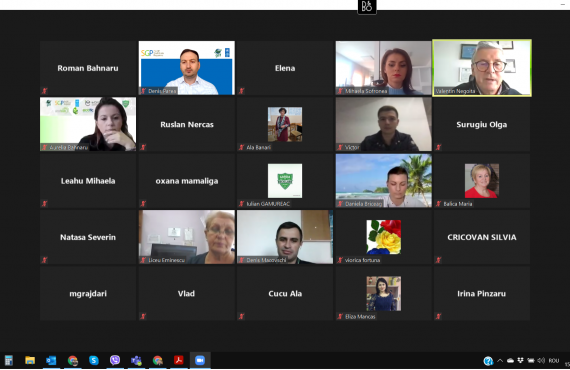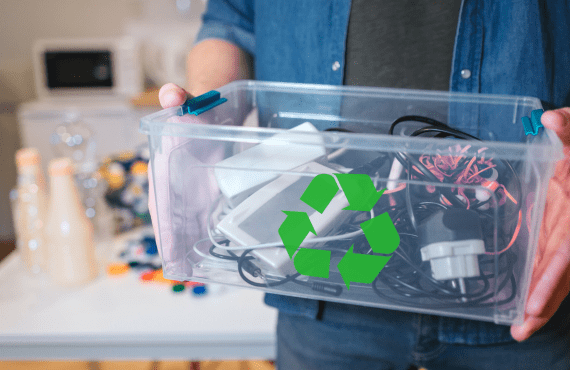In the context of the alarming increase in plastic waste, AO Verde e Moldova in partnership with AO the E-CIRCULAR Training and Consulting Center and with the support of the GEF Small Grants Program - UNDP, have achieved the first Reference study on plastic waste management in the Republic of Moldova. The results of the study were presented in a public event, organized on February 24.
At least in the last 10 years there has been a constant increase in the quantities of imported plastic materials and plastic waste generated, most of which (over 90%) is disposed of by storage mixed with household waste.
According to the Study, the largest share of the plastic materials market belongs to IMPORT – 82%, and only 18% belongs to EXPORT. The market of plastic materials and plastic articles, based on the export and import customs declarations of legal entities, for the year 2022 was about 7 billion lei. Only in 2022 at the national level, 97,246 tons were imported compared to 106,509 tons imported in 2021.
Of the total plastic waste generated in the country, only a small part is recycled. The recycling rate in 2021 was only 3%. Most of the waste ends up in landfills or in the environment, which is a major problem for citizens' health and ecosystems. These results prove that recycling is not the only, nor by far the most effective, solution in the fight against plastic waste at the national level. It is important to identify new solutions with an increased focus on prevention, reduction and reuse.
Another important indicator analyzed by the study relates to the amount of taxes paid by producers in the last 5 years to the State Budget for environmental pollution related to plastic materials in the amount of 1.15 billion lei, on average 230 million lei annually, in the context where no some sources of data were identified that would confirm the allocation of at least 1 % of that amount for actions to prevent plastic pollution, development of infrastructure for the separate collection of plastic waste, investments in recycling technologies, etc.
"The study is called ZERO PLASTIC. The title should not be taken in its direct meaning, i.e. to reduce waste to zero. Zero waste is impossible, but we must reduce the amount of waste we generate and learn to be circular and fair to the environment" says Aurelia BAHNARU, president of AO E-CIRCULAR.
Organizations such as the Ellen MacArthur Foundation and the World Economic Forum (WEF) have emphasized the importance of properly addressing the full life cycle of plastics specifically to reduce the socio-economic and environmental consequences resulting from the plastic crisis both globally and nationally in especially for countries that do not have the necessary resources, technologies and capabilities to meet these challenges. We consider the principles of this approach to be applicable also for the Republic of Moldova, respectively they form the basis of the formulation of the recommendations set out in the Study and later propose to be integrated in the elaboration of the National Action Plan for the reduction of pollution with plastic waste and the implementation of the principles of the circular economy. The main recommendations from the study aim at:
- Establishing the import ban for plastic products with an environmental impact and which are not subject to recycling;
- Setting a % target to reduce single-use packaging for food, beverage, e-commerce and household care products. A gradual reduction of 50 % by 2030 is proposed;
- Encouraging reusable materials through tax incentives. Tax exemption/reductions for manufacturers implementing reuse systems as measures to prevent environmental pollution;
- Introduction of differentiated deposit schemes for single-use packaging and reusable packaging. It is recommended to clarify exactly how the deposit systems work in both cases and to come with additions to the definition of reusable packaging;
- Implementation of the modular REP tax per type of packaging to stimulate higher recycling rates;
- Mandating by law that local waste management plans be harmonized with spatial development plans (urban planning) to ensure that they clearly allocate the locations necessary for the successful implementation of the local waste management plan;
- Establishing legal obligations among distributors of packaging (including plastic) to equip commercial spaces with bins/RVM systems and working with authorized collective systems to achieve recycling objectives, etc.
"The study is welcome, necessary and I hope it will not be overlooked by the specialists in the field" said Alexandru Gîncu, AO Association of Packaging Manufacturers and Importers from Moldova. During the Denis Macovschii event, the Environment Agency presented the REP mechanism and how it would significantly contribute to the reduction of waste, as well as represent economic benefits for economic agents.
Reducing waste in the first place is good for our health. Roman BAHNARU and Iulian BERCU urged us to be more active and responsible in terms of the environment, who come with a call to everyone to join the plogging events (translated from English: a combination of jogging and picking up trash) that will take place during this year as part of the RUNfromPLASTIC initiative.
The event brought together representatives of the authorities, the private sector, environmental activists, journalists and members of civil society, providing a platform for discussions and debates on how we can improve plastic waste management in the Republic of Moldova. This presentation of the results of the study represents an important first step towards a better management of plastic waste in the Republic of Moldova and, we hope, will stimulate concrete actions to protect the environment.
STUDY ON PLASTIC WASTE IN THE REPUBLIC OF MOLDOVA
This event is organized by AO Verde e Moldova in partnership with aA The E-CIRCULAR training and consultancy center in the context of the implementation of the "Plastic Waste in the Circular Economy: Community Solutions" project with the financial support of the GEF-PNUD Small Grants Program.

